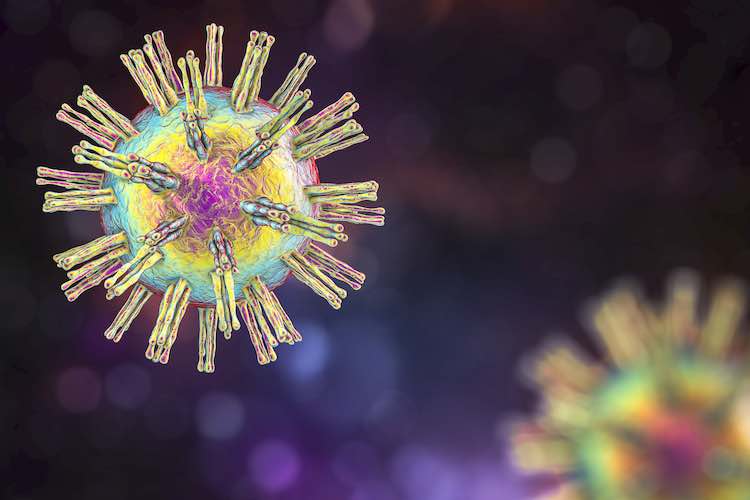What is genital herpes?
Genital herpes is a viral infection characterised by outbreaks of blisters and sores around your genital area. You can catch it through having sex (usually vaginal or anal intercourse, or oral sex) with someone who is infected with one of the viruses that cause genital herpes.
Once you are infected with a genital herpes virus, it stays in your body forever, even after the blisters have gone. Some people with genital herpes have outbreaks of genital sores that keep coming back, due to the virus becoming active again, while other people have no symptoms at all and don’t even know they have the virus in their body. So it’s possible to transmit the virus to sexual partners even if you don’t have symptoms (though this is less likely than when you have active lesions).
What causes genital herpes?
Genital herpes is caused by a virus — either herpes simplex virus type 2 (HSV-2) or herpes simplex virus type 1 (HSV-1).
HSV-2 is the virus that most commonly causes genital herpes. This virus is usually spread through close skin-to-skin contact or via genital secretions during sex, e.g. during vaginal intercourse or anal intercourse.
HSV-1 is the virus that normally causes cold sores, but it can also cause genital herpes. The virus can spread during oral sex from the skin around the mouth, where it has caused cold sores, to the skin on or around another person’s genitals, where it can cause genital sores.
What are the symptoms of genital herpes?
Once the virus enters the skin on or around your genitals, it travels to cells in the roots of the nerves of your spinal cord, where it remains permanently.
Many people who are infected with a genital herpes virus do not develop any symptoms, or they might have some symptoms that they or their doctor do not recognise as genital herpes, so they might remain unaware that they have a genital herpes virus in their body.
When symptoms of genital herpes occur for the first time, they usually appear 2 to 10 days after you become infected with the virus, although occasionally, the first outbreak may not occur until months or even years later.
What are the symptoms that arise during an outbreak of genital herpes?
- Flu-like symptoms can occur with the first attack.
- A tingling or burning sensation of the skin on or near the genitals or anus.
- Aching in the buttocks, legs or genitals.
- A fluid discharge from the vagina.
- An area of small red lumps near the area that the virus has entered the body, such as on the penis, near the anus or on the vulva (the female genital region).
- These red lumps turn to blisters filled with clear fluid that break open to leave painful sores.
- These sores form a crust after a few days and heal within about one to 2 weeks, without leaving scars.
Usually the first outbreak lasts for 2 or 3 weeks and is often the most severe, so it’s important to see your doctor for treatment as soon as possible to minimise the pain and complications associated with this attack. Later outbreaks are usually less severe and tend not to last as long as the first outbreak, but the length and severity of outbreaks varies from person to person. Genital herpes symptoms can settle and never re-occur, or they can keep coming back — either several times a year, or just once or twice in a lifetime. If you have any symptoms that you suspect may be genital herpes, see your doctor promptly.
How can I test for genital herpes?
If you have genital sores, see your doctor, who can work out if you have genital herpes by taking a swab from one of the sores.
What treatment is available for genital herpes?
Although there is no cure for genital herpes, your doctor can prescribe antiviral medicines that can help make the symptoms of an outbreak less severe and last a shorter time.
If outbreaks are very frequent or severe, suppressive treatment (treatment to suppress an outbreak) may be an option. This is when the antiviral medicines are taken continuously for several months. Taking antiviral medicines as suppressive treatment, along with condom use during sex, can help reduce the risk of transmitting the virus to a non-infected partner.

